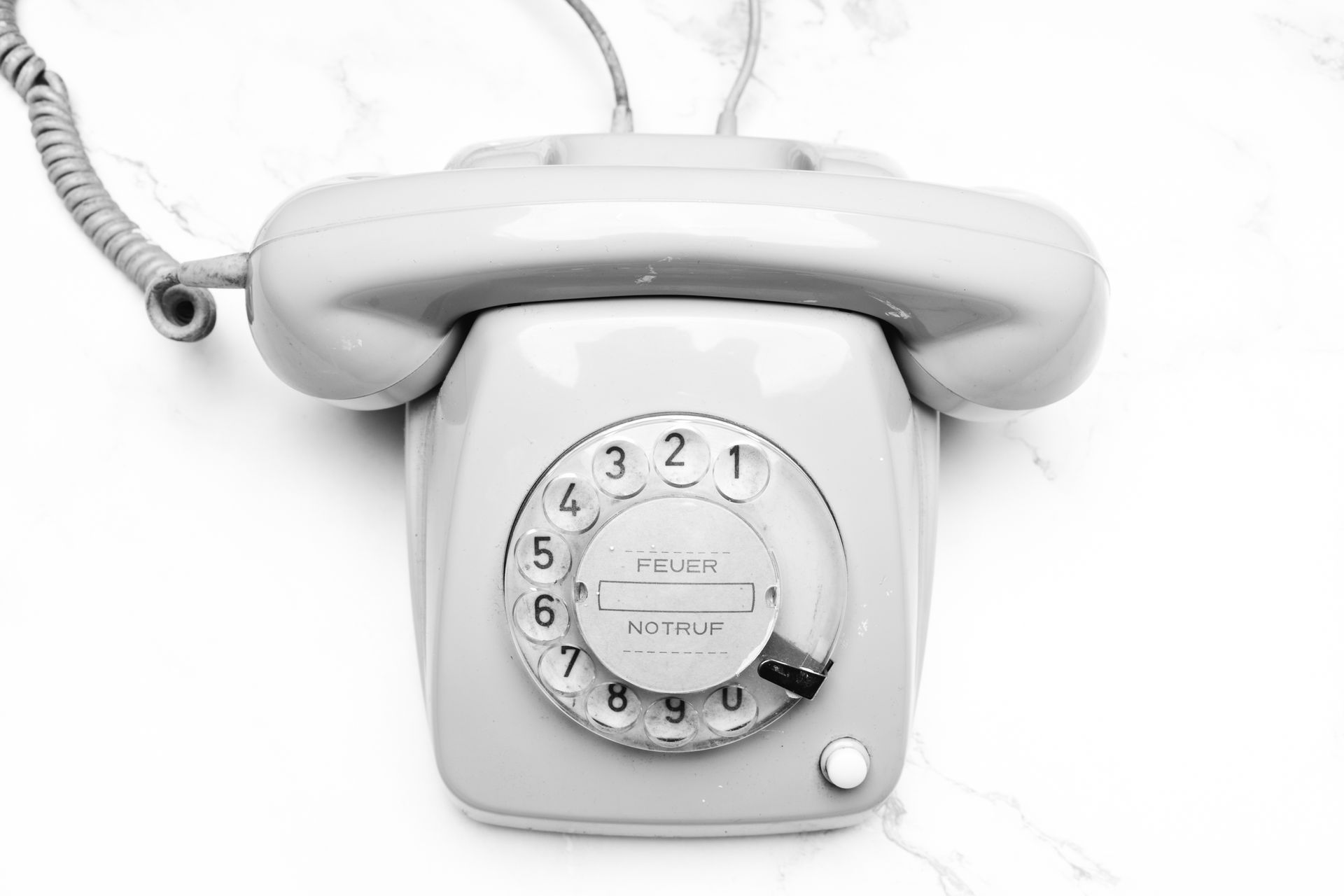:// Expert Guides

by Callum Wells
•
28 February 2024
In today’s fast-paced business world, it’s essential to have real-time tracking and monitoring of your vehicles. Whether you have a small fleet or a large one, having a vehicle tracking solution in place can provide numerous benefits for your business. But with so many options available, how do you choose the right vehicle tracking solution for your business? In this article, we’ll discuss the key factors to consider when selecting a vehicle tracking solution that meets your business needs. Why Do You Need a Vehicle Tracking Solution? Before we dive into the factors to consider, let’s first understand why having a vehicle tracking solution is crucial for your business. Real-Time Tracking and Monitoring One of the main reasons to invest in a vehicle tracking solution is to have real-time tracking and monitoring of your vehicles. This allows you to know the exact location of your vehicles at any given time, which can be useful for route optimisation, dispatching, and responding to customer inquiries. Improved Fleet Management With a vehicle tracking solution, you can monitor the performance of your fleet and identify areas for improvement. This can help you reduce fuel costs, optimise routes, and improve overall efficiency. Increased Safety and Security A vehicle tracking solution can also enhance the safety and security of your vehicles and drivers. With real-time tracking, you can quickly locate a stolen vehicle and take necessary action. You can also monitor driver behaviour and ensure they are following safe driving practices. Factors to Consider When Choosing a Vehicle Tracking Solution Now that we understand the importance of a vehicle tracking solution, let’s look at the key factors to consider when selecting one for your business. Type of Tracking Technology There are two main types of tracking technologies used in vehicle tracking solutions: GPS and cellular. GPS tracking uses satellites to determine the location of a vehicle, while cellular tracking uses cellular networks to transmit data. GPS tracking is more accurate and reliable, but it may not work in areas with poor satellite coverage. On the other hand, cellular tracking can work in most areas, but it may not be as accurate as GPS tracking. Consider the areas where your vehicles will be operating and choose a tracking solution that works best for your needs. Real-Time Tracking and Monitoring Capabilities Real-time tracking and monitoring capabilities are essential for any vehicle tracking solution. This allows you to see the exact location of your vehicles at any given time and receive real-time updates on their movements. Make sure the solution you choose offers real-time tracking and monitoring features, as this will provide you with the most accurate and up-to-date information about your fleet. Customisation and Integration Options Every business has unique needs, and your vehicle tracking solution should be able to cater to those needs. Look for a solution that offers customisation options, such as the ability to set up geofences, alerts, and reports based on your specific requirements. Additionally, consider the integration options of the solution. Can it integrate with your existing systems, such as your CRM or dispatching software? This can help streamline your operations and improve efficiency. User-Friendly Interface A user-friendly interface is crucial for any vehicle tracking solution. Your team will be using the solution on a daily basis, so it’s essential that they can easily navigate and use the system. Look for a solution with a clean and intuitive interface that is easy to use and understand. This will save you time and resources in training your team on how to use the system. Cost and Return on Investment (ROI) Cost is always a significant factor when making any business decision. When it comes to choosing a vehicle tracking solution, consider the initial cost of the system, as well as any ongoing fees or maintenance costs. But don’t just focus on the cost; also consider the potential return on investment (ROI) of the solution. Will it help you save money in the long run through improved efficiency, reduced fuel costs, and better fleet management? Make sure to weigh the cost against the potential benefits to determine the true value of the solution. Customer Support and Training When investing in a vehicle tracking solution, it’s essential to consider the level of customer support and training provided by the company. Look for a solution that offers 24/7 customer support and training resources to ensure that you and your team can get the most out of the system. Reputation and Reviews Before making a decision, it’s always a good idea to research the reputation and reviews of the vehicle tracking solution provider. Look for reviews from other businesses in your industry to see how the solution has worked for them. Additionally, consider the company’s reputation in the market and their track record of providing reliable and effective vehicle tracking solutions. Real Vehicle Tracking Solutions RAM Tracking RAM Tracking is a fleet management software that offers real-time tracking and monitoring of vehicles, as well as features such as maintenance tracking, and job management. Fleetio Fleetio is a fleet management software that offers real-time tracking and monitoring of vehicles, as well as features such as maintenance tracking, fuel tracking, and driver management. It also offers customisation options and integrates with other systems, such as fuel cards and telematics devices. Samsara Samsara is a cloud-based fleet management solution that offers real-time tracking, route optimisation, and driver safety monitoring. It also provides customisable alerts and reports, as well as integration with other systems, such as dispatching software. Conclusion Choosing the right vehicle tracking solution for your business is crucial for improving efficiency, reducing costs, and enhancing the safety and security of your fleet. Consider the type of tracking technology, real-time tracking capabilities, customisation and integration options, user-friendly interface, cost and ROI, customer support and training, and the reputation of the solution provider when making your decision. By carefully considering these factors, you can select a vehicle tracking solution that meets your business needs and helps you achieve your goals.

by Callum Wells
•
28 February 2024
If you're a small business owner, you may have recently received an email from Google informing you that your business profile website will be discontinued. This news may come as a shock, especially if you've invested time and resources into creating and maintaining your business profile website. But fear not, this change is not the end of the world. In fact, it may even be a positive change for your business. In this article, we'll explore what this change means for small businesses and how you can adapt to ensure your online presence remains strong. Why Is Google Sunsetting Business Profile Websites? The Rise of Google Maps Google Maps has become the go-to platform for users to find local businesses. With its detailed maps, reviews, and business information, it's no surprise that Google Maps has become the preferred choice for users looking for local businesses. As a result, Google has decided to focus its efforts on improving and expanding Google Maps, rather than maintaining separate business profile websites. Simplifying the User Experience By consolidating business information onto one platform, Google is simplifying the user experience. Users will no longer have to navigate between a business profile website and Google Maps to find the information they need. This change will also make it easier for businesses to manage their online presence, as they will only need to update their information in one place. What Does This Mean for Small Businesses? Your Business Profile Website Will Be Discontinued If you currently have a business profile website, it will be discontinued on March 1st, 2024. This means that your website will no longer be accessible to users and any links to your website will no longer work. However, your business information will still be available on Google Maps. You Can Still Create a New Website Just because your business profile website is being discontinued, doesn't mean you can't have a website at all. In fact, Google is encouraging businesses to create a new website. Your Online Presence Will Still Be Strong While it may seem like losing your business profile website will make your business invisible, it's important to remember that your business information will still be available on Google Maps. In fact. It goes without saying however that with a new website, your online presence will be even be stronger than before. How Can You Adapt to This Change? Create a New Website Using Google My Business As mentioned earlier, Google are encouraging businesses to still have a website feature as Google Maps doesn't impact search engine result pages (SERPs). Our partner WebHero are offering a 20% discount on there premium website package due to the recent announcement from Google - this is a great option for small businesses who may not have the significant financial resources to create and maintain a website. Why invest in Web Design and SEO? If you want a more customised and professional website, you may want to consider investing in web design and SEO services. A well-designed website that is optimised for search engines can greatly improve your online presence and attract more customers. WebHero has experience with local SEO to ensure your website is optimised for local searches. Focus on Local SEO With the discontinuation of business profile websites, local SEO will become even more important for small businesses. Make sure your Google My Business listing is up to date and optimised with relevant keywords and accurate information. Encourage customers to leave reviews on your Google My Business listing, as this can greatly impact your local search ranking. Utilise Other Online Platforms While Google Maps may be the go-to platform for local business searches, it's not the only one. Make sure your business is listed on other online platforms such as Yelp, Facebook, and TripAdvisor. This will not only increase your online presence but also make it easier for potential customers to find your business. Final Thoughts While the discontinuation of business profile websites may seem like a setback for small businesses, it's important to remember that this change is ultimately for the better. By consolidating business information onto one platform, Google is simplifying the user experience and making it easier for businesses to manage their online presence. By adapting to this change and utilising other online platforms, small businesses can continue to thrive and attract new customers.

by Callum Wells
•
28 February 2024
As technology continues to evolve at a rapid pace, so do web design trends. What may be popular today could be outdated in just a few years. As we look ahead to 2024, it's important for web designers to stay ahead of the curve and anticipate the trends that will shape the future of web design. In this article, we'll explore the top web design trends for 2024 and what you can expect to see in the world of web design in the coming years. Minimalism and Simplicity In recent years, minimalism has become a popular trend in web design, and it's expected to continue to dominate in 2024. Minimalist design focuses on simplicity, using clean lines, white space, and a limited colour palette to create a sleek and modern look. Minimalist design not only looks visually appealing, but it also improves the user experience by making it easier for users to navigate and find the information they need. With the rise of mobile devices, minimalism has become even more important as it allows for a seamless transition from desktop to mobile design. Dark Mode Dark mode has become a popular trend in recent years, and it's expected to continue to gain popularity in 2024. Dark mode is a colour scheme that uses dark backgrounds and light text, creating a more dramatic and modern look. Not only does dark mode look visually appealing, but it also has practical benefits. It reduces eye strain and can help conserve battery life on devices with OLED screens. With more and more devices incorporating dark mode options, it's likely that this trend will continue to be popular in web design. 3D and Interactive Elements As technology continues to advance, we can expect to see more websites incorporating 3D and interactive elements in their design. These elements can add depth and dimension to a website, creating a more engaging and immersive experience for users. 3D elements can also be used to showcase products or services in a more interactive way, allowing users to rotate and view them from different angles. This trend is expected to continue to grow in popularity in the coming years as technology continues to advance. Voice User Interfaces (VUI) With the rise of virtual assistants like Siri and Alexa, voice user interfaces (VUI) have become more prevalent in our daily lives. In web design, VUI can be used to enhance the user experience by allowing users to interact with a website using their voice. This trend is expected to continue to grow in popularity in 2024 as more and more people become comfortable with using VUIs. It can also be a useful tool for those with disabilities, making websites more accessible for all users. Microinteractions Micro-interactions are small, subtle animations or effects that occur when a user interacts with a website. These can include things like hover effects, loading animations, or button animations. While micro-interactions may seem like a small detail, they can greatly enhance the user experience by making a website feel more interactive and engaging. This trend is expected to continue to grow in popularity in 2024 as more websites incorporate these small but impactful details. Mobile-First Design With the rise of mobile devices, it's no surprise that mobile-first design has become a popular trend in recent years. This approach to web design focuses on designing for mobile devices first, then scaling up for larger screens. In 2024, we can expect to see more websites adopting this approach as mobile devices continue to dominate internet usage. Mobile-first design not only improves the user experience on mobile devices, but it also helps with search engine optimisation (SEO) as Google now prioritises mobile-friendly websites in search results. Personalisation and Customisation In the age of social media and personalised recommendations, users have come to expect a personalised experience when interacting with websites. In 2024, we can expect to see more websites incorporating personalisation and customisation in their design to create a more tailored experience for users. This can include things like personalised product recommendations, customised landing pages based on user behaviour, and personalised messaging. By creating a more personalised experience, websites can improve user engagement and conversion rates. What's Not Hot: Flash and Pop-Ups While we've explored the top web design trends for 2024, it's also important to note what's not hot in the world of web design. Flash and pop-ups have been popular in the past, but they are now considered outdated and can even harm the user experience. Flash is no longer supported by most browsers and can cause security issues, making it a risky choice for web design. Pop-ups can also be annoying for users and can negatively impact the user experience. In 2024, we can expect to see a decline in the use of these outdated design elements. Conclusion As we look ahead to 2024, we can expect to see a continued focus on user experience and the incorporation of new technologies in web design. From augmented reality to personalisation, these trends will shape the future of web design and help create a more engaging and interactive online experience for users. By staying ahead of the curve and incorporating these trends into your web design, you can ensure that your website remains relevant and effective in the years to come.

by Callum Wells
•
28 February 2024
In today’s fast-paced business world, effective communication is crucial for success. With the rise of remote work and global teams, businesses need advanced telephone systems to stay connected and productive. In this article, we’ll explore the role of advanced telephone systems in modernising business communication and how they can benefit your organisation. Why Traditional Phone Systems Are No Longer Enough Traditional phone systems, also known as landlines, have been the standard for business communication for decades. However, with the advancement of technology, they are no longer enough to meet the demands of modern businesses. Limited Features and Functionality Traditional phone systems offer limited features and functionality, making it difficult for businesses to keep up with the changing communication landscape. They lack features such as call forwarding, voicemail, and conference calling, which are essential for effective communication in today’s business world. High Costs Traditional phone systems require expensive hardware and maintenance, making them a costly investment for businesses. Additionally, long-distance and international calls can add up quickly, resulting in high phone bills. Inflexibility Traditional phone systems are not designed to accommodate remote work or global teams. They are tied to a physical location, making it challenging for employees to work from anywhere or for businesses to expand their operations globally. The Rise of Advanced Telephone Systems With the limitations of traditional phone systems becoming more apparent, businesses are turning to advanced telephone systems to modernise their communication. What Are Advanced Telephone Systems? Advanced telephone systems, also known as IP telephony or VoIP (Voice over Internet Protocol) systems, use the internet to transmit voice and data instead of traditional phone lines. They offer a wide range of features and functionality that traditional phone systems lack, making them a more efficient and cost-effective option for businesses. Benefits of Advanced Telephone Systems Advanced telephone systems offer numerous benefits for businesses, including: Cost Savings: With advanced telephone systems, businesses can save on hardware and maintenance costs. Additionally, long-distance and international calls are significantly cheaper, resulting in lower phone bills. Increased Flexibility: Advanced telephone systems are not tied to a physical location, making it easier for employees to work remotely and for businesses to expand globally. Improved Communication: With features such as call forwarding, voicemail, and conference calling, advanced telephone systems enable businesses to communicate more effectively and efficiently. Scalability: Advanced telephone systems can easily scale with your business, allowing you to add or remove lines as needed. Integration with Other Tools: Many advanced telephone systems offer integration with other tools such as CRM (Customer Relationship Management) software, making it easier for businesses to manage their communication and customer data in one place. Types of Advanced Telephone Systems There are several types of advanced telephone systems available, each with its own unique features and benefits. Let’s take a look at some of the most popular options. Hosted VoIP Hosted VoIP is a cloud-based telephone system where the service provider hosts and manages the system. Businesses pay a monthly fee for the service, and the provider takes care of maintenance and updates. Hosted VoIP is an excellent option for businesses that want a cost-effective and low-maintenance solution. It is also highly scalable, making it ideal for growing businesses. On-Premise VoIP On-premise VoIP is a telephone system that is installed and managed on-site by the business. This option requires a larger upfront investment, but it offers more control and customisation options. On-premise VoIP is a good choice for businesses that want complete control over their telephone system and have the resources to manage it. Virtual Phone Systems Virtual phone systems are cloud-based and do not require any hardware or installation. They use existing devices such as smartphones and laptops to make and receive calls. Virtual phone systems are ideal for small businesses or startups that want a cost-effective and easy-to-use solution. How to Choose the Right Advanced Telephone System for Your Business With so many options available, choosing the right advanced telephone system for your business can be overwhelming. Here are some factors to consider when making your decision. Business Size The size of your business will play a significant role in determining the type of advanced telephone system you need. For example, a small business may benefit from a virtual phone system, while a larger business may require a more robust solution such as hosted VoIP. Budget Your budget will also play a crucial role in your decision. Hosted VoIP and virtual phone systems are typically more cost-effective options, while on-premise VoIP requires a larger upfront investment. Features and Functionality Consider the features and functionality that are most important to your business. Do you need call forwarding, voicemail, or conference calling? Make a list of must-have features and choose a system that offers them. Integration with Other Tools If your business uses other tools such as CRM software, consider choosing an advanced telephone system that offers integration with those tools. This will make it easier to manage your communication and customer data in one place. Real-World Examples of Advanced Telephone Systems in Action Many businesses have already made the switch to advanced telephone systems and are reaping the benefits. Here are some real-world examples of how advanced telephone systems have helped businesses improve their communication. A Small Business Goes Global A small business that specialises in handmade jewellery wanted to expand its operations globally. However, with a traditional phone system, this would have been a costly and challenging endeavour. By switching to a virtual phone system, the business was able to set up a toll-free number in different countries, making it easier for customers to reach them. This resulted in increased sales and a more significant global presence for the business. A Large Corporation Saves on Costs A large corporation with offices in different countries was struggling with high phone bills due to long-distance and international calls. By switching to a hosted VoIP system, the company was able to significantly reduce its phone bills and save on hardware and maintenance costs. A Remote Team Stays Connected A company with a remote team was struggling to stay connected and productive due to the limitations of their traditional phone system. By switching to an on-premise VoIP system, the team was able to make and receive calls from anywhere, improving communication and productivity. Conclusion Advanced telephone systems are essential for modernising business communication. With their cost savings, increased flexibility, and improved communication, they offer numerous benefits for businesses of all sizes. By considering your business needs and budget, you can choose the right advanced telephone system to take your communication to the next level.

by Callum Wells
•
28 February 2024
In today’s digital age, communication is key for any business. With the rise of remote work and the need for efficient communication, choosing the right phone system for your business is crucial. Two popular options are VoIP (Voice over Internet Protocol) and traditional phone systems. In this article, we’ll compare the two and help you determine which is the best fit for your business. What Is VoIP? VoIP is a technology that allows you to make phone calls over the internet instead of using traditional phone lines. It converts your voice into digital data and transmits it over the internet, making it a cost-effective and flexible option for businesses. Benefits of VoIP Cost-effective: VoIP systems are typically more affordable than traditional phone systems, as they use your existing internet connection instead of requiring separate phone lines. Flexibility: With VoIP, you can make and receive calls from anywhere with an internet connection. This is especially beneficial for remote workers or businesses with multiple locations. Advanced features: VoIP systems offer a range of advanced features, such as call forwarding, voicemail to email, and call recording, that can improve communication and productivity for your business. What Are Traditional Phone Systems? Traditional phone systems, also known as landlines, use physical phone lines to transmit voice calls. They have been the standard for communication in businesses for many years. Benefits of Traditional Phone Systems Reliability: Traditional phone systems are known for their reliability, as they are not affected by internet outages or power failures. Sound quality: As traditional phone systems use dedicated phone lines, they typically have better sound quality than VoIP systems. Familiarity: Many people are familiar with traditional phone systems, making it an easy transition for businesses that are used to this type of communication. VoIP vs. Traditional Phone Systems: A Comparison Cost When it comes to cost, VoIP systems are typically more affordable than traditional phone systems. As VoIP uses your existing internet connection, there is no need for additional phone lines, resulting in lower monthly costs. Traditional phone systems, on the other hand, require dedicated phone lines, which can be costly, especially for businesses with multiple lines. Features VoIP systems offer a range of advanced features that are not available with traditional phone systems. These include call forwarding, voicemail to email, and call recording, which can improve communication and productivity for your business. Traditional phone systems, on the other hand, have limited features and are primarily used for making and receiving calls. Flexibility One of the biggest advantages of VoIP systems is their flexibility. As long as you have an internet connection, you can make and receive calls from anywhere, making it a great option for remote workers or businesses with multiple locations. Traditional phone systems, on the other hand, are limited to the physical location of the phone lines, making it difficult for remote workers to use. Sound Quality While VoIP systems have come a long way in terms of sound quality, traditional phone systems still have the edge in this area. As traditional phone systems use dedicated phone lines, they typically have better sound quality than VoIP systems. Reliability Traditional phone systems are known for their reliability, as they are not affected by internet outages or power failures. This can be a significant advantage for businesses that rely heavily on phone communication. VoIP systems, on the other hand, are dependent on internet connectivity, making them vulnerable to outages and disruptions. Which Is Right for Your Business? When deciding between VoIP and traditional phone systems, there are a few factors to consider. Budget If budget is a significant concern for your business, VoIP may be the better option. As it uses your existing internet connection, there are no additional costs for phone lines, resulting in lower monthly expenses. Features If your business relies heavily on advanced features such as call forwarding, voicemail to email, and call recording, then VoIP is the clear winner. These features are not available with traditional phone systems, making VoIP the better option for businesses looking to improve communication and productivity. Flexibility If your business has remote workers or multiple locations, then VoIP is the better option. As long as there is an internet connection, your employees can make and receive calls from anywhere, making it a flexible and convenient option. Reliability If your business relies heavily on phone communication and cannot afford any disruptions, then traditional phone systems may be the better option. As they are not dependent on internet connectivity, they are more reliable in terms of call quality and availability. Conclusion When it comes to choosing between VoIP and traditional phone systems, there is no one-size-fits-all solution. It ultimately depends on your business's specific needs and budget. If you are looking for a cost-effective, flexible, and feature-rich option, then VoIP is the way to go. However, if reliability and call quality are your top priorities, then traditional phone systems may be the better option. Whichever option you choose, make sure to do your research and consider your business's unique needs to make an informed decision. With the right phone system in place, you can improve communication and productivity for your business.

by Callum Wells
•
28 February 2024
In today’s digital age, businesses rely heavily on fast and reliable internet connections to stay competitive. This is where leased line services come in. But what exactly are leased line services, and why does your business need them? In this article, we’ll dive into the world of leased line services and explore how they work and the benefits they offer. What Are Leased Line Services? Leased line services, also known as dedicated internet access, are private data connections that provide a direct link between two locations. This means that the connection is not shared with other users, ensuring a consistent and reliable connection at all times. How Do Leased Line Services Work? Leased line services work by connecting two locations through a dedicated line provided by a telecommunications company. This line is typically made of fibre optic cables, which are known for their high-speed data transmission capabilities. The connection is established through a point-to-point connection, meaning that the data travels directly from one location to the other without passing through any intermediary points. This results in a faster and more reliable connection compared to traditional broadband services, which are shared among multiple users. Why Does Your Business Need Leased Line Services? Now that we understand what leased line services are and how they work, let’s explore why your business needs them. Faster and More Reliable Internet Connection In today’s fast-paced business world, a slow and unreliable internet connection can significantly hinder productivity and efficiency. Leased line services offer a dedicated connection, ensuring that your business has a fast and reliable internet connection at all times. This is especially important for businesses that rely heavily on cloud-based applications and real-time communication tools. Increased Bandwidth Leased line services offer higher bandwidth compared to traditional broadband services. This means that your business can transfer larger amounts of data at a faster rate, allowing for smoother and more efficient operations. This is particularly beneficial for businesses that handle large amounts of data, such as video conferencing, file sharing, and data backups. Symmetrical Upload and Download Speeds Unlike traditional broadband services, which offer faster download speeds and slower upload speeds, leased line services offer symmetrical upload and download speeds. This means that your business can upload and download data at the same high speed, resulting in a more balanced and efficient data transfer. Better Security Leased line services offer a dedicated connection, meaning that your data is not shared with other users. This provides an added layer of security, as there is no risk of other users accessing your data or slowing down your connection. Additionally, leased line services often come with built-in security features, such as firewalls and encryption, to further protect your data. 24/7 Support Most leased line service providers offer 24/7 technical support to ensure that your business is always connected. This means that if any issues arise, you can quickly get in touch with a support team to resolve them, minimising downtime and ensuring that your business operations run smoothly. Scalability As your business grows, so does your need for a faster and more reliable internet connection. Leased line services offer scalability, meaning that you can easily increase your bandwidth as your business expands. This ensures that your business is always equipped with the necessary resources to support its operations. Types of Leased Line Services There are two main types of leased line services: point-to-point and point-to-multipoint. Point-to-Point Leased Line Services Point-to-point leased line services connect two locations, such as a business headquarters and a remote office, through a dedicated line. This type of service is ideal for businesses that need a direct and secure connection between two locations. Point-to-Multipoint Leased Line Services Point-to-multipoint leased line services connect multiple locations to a central location through a dedicated line. This type of service is ideal for businesses that have multiple offices or locations that need to be connected to a central hub. How to Choose the Right Leased Line Service Provider When choosing a leased line service provider, there are a few key factors to consider: Reliability and Uptime Guarantee One of the main reasons businesses opt for leased line services is for their reliability and uptime guarantee. When choosing a provider, make sure to inquire about their uptime guarantee and their track record for reliability. Customer Support As mentioned earlier, 24/7 technical support is crucial for businesses that rely on a fast and reliable internet connection. Make sure to choose a provider that offers reliable and responsive customer support. Scalability As your business grows, so will your need for a faster and more reliable internet connection. Choose a provider that offers scalability, allowing you to easily increase your bandwidth as your business expands. Security Features Data security is a top priority for businesses, and leased line services offer an added layer of security compared to traditional broadband services. When choosing a provider, make sure to inquire about their security features, such as firewalls and encryption. Real-World Examples of Leased Line Services in Action Retail Industry In the retail industry, leased line services are used to connect multiple store locations to a central hub, allowing for real-time inventory management and sales data tracking. This ensures that all stores are connected and operating efficiently, resulting in a better customer experience. Healthcare Industry In the healthcare industry, leased line services are used to connect hospitals and clinics to a central data centre, allowing for the secure transfer of patient data and real-time communication between healthcare professionals. This ensures that patient data is always accessible and secure, resulting in better patient care. Conclusion Leased line services offer a fast, reliable, and secure internet connection for businesses of all sizes. With their dedicated connection and high-speed data transmission capabilities, they are a crucial tool for businesses that rely heavily on cloud-based applications and real-time communication tools. When choosing a leased line service provider, make sure to consider factors such as reliability, customer support, scalability, and security features to ensure that your business has the best possible connection.

by Callum Wells
•
28 February 2024
In today's fast-paced business world, having a reliable and high-speed internet connection is crucial for success. This is where leased lines come in. Leased lines are dedicated, private connections that provide businesses with a direct and secure link to the internet. In this article, we will discuss the advantages of leased lines and how they work to ensure reliable and high-speed connectivity for businesses. How Do Leased Lines Work? Leased lines work by providing a direct connection between two locations, such as a business and an internet service provider (ISP). This connection is dedicated solely to the business, meaning that it is not shared with any other users. This ensures that the connection is not affected by external factors, such as high internet traffic or network congestion. Leased lines also offer symmetrical bandwidth, meaning that the upload and download speeds are the same, providing businesses with equal and consistent speeds for both sending and receiving data. Network Solutions One of the main advantages of leased lines is that they offer businesses a reliable and secure network solution. As mentioned, leased lines provide a dedicated connection, which means that businesses do not have to compete with other users for bandwidth. This ensures that businesses have a consistent and reliable connection, even during peak usage times. Additionally, leased lines offer businesses a high level of security, as the connection is not shared with other users, making it less vulnerable to cyber attacks. High-Speed Connectivity Another major advantage of leased lines is their high-speed connectivity. As the connection is dedicated solely to the business, it can offer much faster speeds than traditional broadband connections. This is especially beneficial for businesses that require large amounts of data to be transferred quickly, such as those in the finance or healthcare industries. Leased lines also offer businesses the ability to upgrade their bandwidth as their needs grow, ensuring that they always have the necessary speeds to support their operations. Cost-Effective While leased lines may seem like a costly investment, they can actually be a cost-effective solution for businesses in the long run. As the connection is dedicated solely to the business, there are no additional costs for usage or data limits. This means that businesses can use the connection as much as they need without incurring any extra charges. Additionally, leased lines offer businesses the ability to bundle services, such as voice and data, which can result in cost savings. Increased Productivity With a reliable and high-speed connection, businesses can experience increased productivity. Leased lines allow for faster data transfer, which means that employees can access and share information quickly and efficiently. This can also lead to improved collaboration and communication within the business, as well as with clients and partners. With a dedicated connection, businesses can also avoid downtime and delays, ensuring that their operations run smoothly and efficiently. In conclusion, leased lines offer businesses a reliable, secure, and high-speed network solution that can lead to increased productivity and cost savings. With their dedicated connection and symmetrical bandwidth, leased lines are a valuable investment for businesses looking to ensure reliable and high-speed connectivity.

by Callum Wells
•
28 February 2024
In today’s digital age, businesses rely heavily on a stable and reliable internet connection to operate efficiently. With the increasing demand for high-speed data transfer and real-time communication, traditional broadband connections may not be enough to meet the needs of modern businesses. This is where leased lines come in. A leased line is a dedicated, fixed-bandwidth data connection that provides a direct link between two locations. It offers a private and secure connection, making it ideal for businesses that require a fast and reliable internet connection. But with so many leased line providers in the market, how do you choose the best one for your business? In this article, we’ll discuss the factors you should consider when selecting a leased line provider to ensure seamless connectivity for your business. What is a Leased Line? Before we dive into the factors to consider when choosing a leased line provider, let’s first understand what a leased line is and how it differs from traditional broadband connections. A leased line is a dedicated connection between two locations, usually a business and an internet service provider (ISP). It provides a fixed bandwidth, meaning the speed and capacity of the connection are guaranteed and not shared with other users. On the other hand, traditional broadband connections are shared among multiple users, resulting in slower speeds during peak usage times. Leased lines, on the other hand, offer symmetrical speeds, meaning the upload and download speeds are the same, making it ideal for businesses that require fast data transfer in both directions. Factors to Consider When Choosing a Leased Line Provider Reliability and Service Level Agreements (SLAs) One of the most critical factors to consider when choosing a leased line provider is reliability. As a dedicated connection, leased lines are expected to have minimal downtime and disruptions. However, in case of any issues, it’s essential to have a reliable provider that can quickly resolve the problem. When researching leased line providers, be sure to check their service level agreements (SLAs). These are contracts that outline the level of service the provider guarantees to deliver. Look for providers that offer high uptime guarantees and have a proven track record of meeting their SLAs. Network Coverage and Availability Before selecting a leased line provider, it’s crucial to check their network coverage and availability in your area. Some providers may have limited coverage, while others may not offer services in your location at all. It’s also essential to consider the scalability of the provider’s network. As your business grows, you may need to increase your bandwidth to accommodate the increased demand. Choose a provider with a robust and scalable network to ensure your business can continue to operate smoothly as it grows. Bandwidth and Speed Options The bandwidth and speed options offered by a leased line provider are also crucial factors to consider. The bandwidth you require will depend on the size of your business, the number of employees, and the type of activities you need to support. When choosing a provider, look for one that offers a range of bandwidth options to cater to your current and future needs. It’s also essential to consider the symmetrical speeds offered by the provider. As mentioned earlier, symmetrical speeds are crucial for businesses that require fast data transfer in both directions. Customer Support and Technical Assistance In case of any issues or disruptions with your leased line connection, it’s essential to have reliable customer support and technical assistance from your provider. Look for providers that offer 24/7 support and have a dedicated team of experts to assist with any technical issues. It’s also crucial to consider the response time of the provider’s technical support team. In case of any disruptions, you’ll want a provider that can quickly resolve the issue to minimise downtime for your business. Cost and Contract Terms The cost of a leased line connection can vary significantly depending on the provider, location, and bandwidth requirements. When comparing providers, be sure to consider the total cost, including installation fees, monthly charges, and any additional costs such as equipment or maintenance fees. It’s also essential to carefully review the contract terms offered by the provider. Some providers may require long-term contracts, while others may offer more flexible options. Consider your business’s needs and budget when choosing a provider and be sure to carefully review the contract terms before signing. Reputation and Reviews Before making a decision, it’s always a good idea to research the reputation and reviews of the leased line providers you’re considering. Look for providers with a proven track record of delivering reliable and high-quality services. You can also reach out to other businesses in your industry and ask for recommendations or read online reviews to get a better understanding of the provider’s reputation. Conclusion Choosing the right leased line provider is crucial for ensuring seamless connectivity and reliable internet access for your business. By considering factors such as reliability, network coverage, bandwidth options, customer support, and cost, you can select a provider that meets your business’s needs and budget. Be sure to research and compare multiple providers before making a decision and consider reaching out to other businesses for recommendations or reading online reviews to get a better understanding of the provider’s reputation. With the right leased line provider, your business can enjoy a fast and reliable internet connection to support its operations and growth.

by Callum Wells
•
28 February 2024
As your business grows, so do your communication needs. This is especially true when it comes to telephone systems. As your customer base expands and your team grows, you need a telephone system that can keep up with your business. That's where scalable solutions come in. In this article, we'll discuss the importance of scalability in telephone systems and how it can benefit your business. What is Scalability? Scalability refers to the ability of a system to handle an increasing amount of work or growth. In the context of telephone systems, scalability means that the system can accommodate a growing number of users, features, and functions without compromising its performance or efficiency. This is crucial for businesses that are experiencing rapid growth or have plans for expansion in the future. Benefits of Scalable Telephone Systems Cost-Effective One of the main benefits of scalable telephone systems is that they are cost-effective. Instead of having to invest in a new system every time your business grows, a scalable system can simply be expanded to meet your needs. This saves you money in the long run and allows you to allocate your budget towards other areas of your business. Flexibility Scalable telephone systems offer flexibility in terms of features and functions. As your business grows, you may need additional features such as call routing, voicemail, or conference calling. With a scalable system, you can easily add these features without having to switch to a completely new system. This allows you to customise your telephone system to meet your specific business needs. Easy to Manage Managing a scalable telephone system is much easier than managing multiple systems for different locations or departments. With a scalable system, all users are on the same platform, making it easier to monitor and troubleshoot any issues. This also makes it easier to train new employees on the system, as they only need to learn one system instead of multiple. Future-Proof By investing in a scalable telephone system, you are future-proofing your business. As your business continues to grow and evolve, your telephone system can grow with it. This eliminates the need for constant upgrades or replacements, saving you time and money in the long run. How to Choose a Scalable Telephone System When choosing a scalable telephone system, there are a few key factors to consider: Cloud-based vs. On-premise: Cloud-based systems are typically more scalable than on-premise systems, as they can easily be expanded without the need for additional hardware or equipment. User-friendly: Look for a system that is user-friendly and easy to manage. This will save you time and resources in the long run. Compatibility: Make sure the system is compatible with your current infrastructure and can integrate with any existing systems or software. Customer support: Choose a provider that offers reliable customer support and assistance with system upgrades or expansions. Conclusion Scalable telephone systems are essential for businesses that are experiencing growth or have plans for expansion. By investing in a scalable system, you can save money, increase flexibility, and future-proof your business. Consider the factors mentioned above when choosing a scalable telephone system for your business. Have any questions or tips for choosing a scalable system? Let us know in the comments.

by Callum Wells
•
28 February 2024
In today's fast-paced business world, having a reliable and secure internet connection is crucial for any organisation. This is where business broadband comes in. Business broadband is a type of internet service specifically designed for businesses, offering faster speeds, better reliability, and enhanced security compared to residential broadband. In this article, we will discuss the benefits of business broadband and why it is a must-have for your organisation. Faster Speeds One of the main benefits of business broadband is its faster speeds. With the increasing demand for online services and cloud-based applications, businesses need a fast and reliable internet connection to stay competitive. Business broadband offers higher download and upload speeds compared to residential broadband, allowing for faster data transfer and smoother online operations. This means your employees can work more efficiently and your customers can access your services without any delays. Better Reliability Another advantage of business broadband is its better reliability. Residential broadband connections are often shared among multiple households, which can lead to slower speeds during peak usage times. Business broadband, on the other hand, offers dedicated connections that are not shared with other users. This means your organization will have a consistent and reliable internet connection, even during busy periods. This is especially important for businesses that rely heavily on internet-based services, such as online sales or video conferencing. Enhanced Security Security is a top concern for any business, and business broadband offers enhanced security features to protect your organization's sensitive data. Business broadband providers often offer advanced security measures such as firewalls, encryption, and virtual private networks (VPNs) to keep your data safe from cyber threats. This is especially important for businesses that handle confidential information, such as financial or personal data. Dedicated Support In addition to faster speeds, better reliability, and enhanced security, business broadband also comes with dedicated support. Business broadband providers understand the importance of a reliable internet connection for businesses and offer 24/7 technical support to ensure any issues are resolved quickly. This means your organisation can minimise downtime and continue operating smoothly without any interruptions. Customised Packages Business broadband providers offer customised packages to meet the specific needs of your organisation. This means you can choose the speed, reliability, and security features that best suit your business. You can also opt for additional services such as web hosting, email hosting, and cloud storage to further enhance your online operations. Conclusion In conclusion, business broadband offers faster speeds, better reliability, enhanced security, dedicated support, and customized packages, making it a must-have for any organization. With the increasing reliance on internet-based services, having a reliable and secure internet connection is crucial for the success of your business. Consider switching to business broadband today and experience the benefits for yourself. Have you made the switch to business broadband? Share your experience in the comments below.
Why choose Expert Spotter?
We’re a dedicated to helping businesses find the answers they need, while connecting you with the best experts to supply the required and to get the job done.
Subscribe to our newsletter
Newsletter
Thank you for contacting us.
We will get back to you as soon as possible.
We will get back to you as soon as possible.
Oops, there was an error sending your message.
Please try again later.
Please try again later.

Most businesses struggle to find the right suppliers to work with. We have a process that helps them find the right experts, so their companies save time and money.
Follow us here
Categories
About
© 2025
All Rights Reserved | Expert Spotter
Made with ❤️ by WebHero
